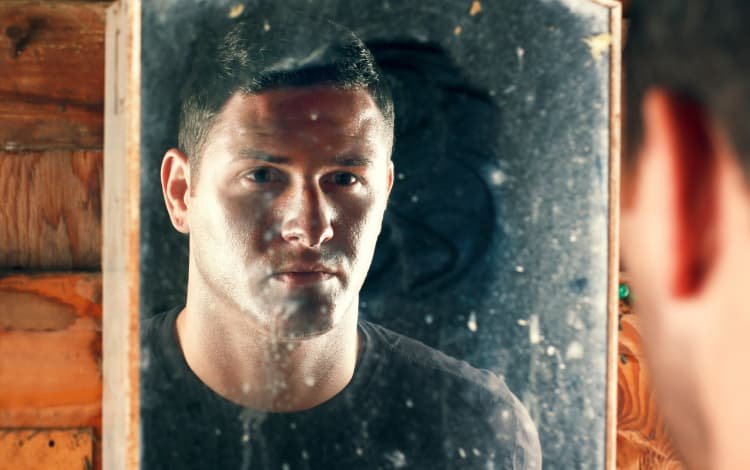Exploring the Human Side of Therapy through a Gay Therapist's Eyes
As we find ourselves in an era marked by increased awareness of mental health, conversations about therapy are gradually seeping into the mainstream. Celebrities sharing their experiences and popular television series like Ted Lasso play significant roles in bringing mental health discussions to the fore.
This wave of interest is reflected within the mental health profession, with Europe, for instance, witnessing a surge in the number of individuals seeking therapy over the past decade.
It's fair to admit that starting any form of counseling can seem intimidating, especially for those venturing into this journey for the first time.
This apprehension tends to be more profound for gay men, who often grapple with unique mental health issues and societal pressures.
Part of easing this apprehension is to normalize therapy through conversation. Who better to do this than a therapist sharing his experience as a therapy client?
That's precisely the purpose of this article.
The Power of Self-Disclosure in LGBTQ Mental Health
There is a common image of therapists as these untouchable, distant figures. And sure, maintaining professional boundaries is important.
But let's not underestimate the magic that can happen when a therapist lets their guard down a little and share parts of themselves that add value to the therapeutic relationship.
Take me as an example.
Self-disclosure is not about blurting out my life story to every client. It's more about sharing bits of my own experiences when it feels right and when it could help the client.
As someone who's walked a gay man’s path before becoming a gay therapist - and since then too, I've learned firsthand about the fears, uncertainties, and breakthrough moments that accompany therapy.
Sharing these experiences doesn't just build a bridge of trust with my clients, but it also makes therapy feel more relatable and more human.
Another beautiful thing about self-disclosure is how it chips away at the stigma surrounding LGBTQ mental health.
When we, as therapists, share our own stories, it can shed new light on therapy, making it feel less scary and more approachable.
As a gay man and a queer therapist, sharing my journey isn't just about transparency - it's about lighting the path for others. It's about showing my clients, particularly those in the LGBTQ community, that they're not alone and it's completely okay to seek help.
When used thoughtfully, self-disclosure can create a space filled with understanding, empathy, and acceptance. And isn't that the kind of space we'd want to enter when embarking on a therapeutic journey?
The Ups and Downs of Being Gay, and How Therapy Can Help
Being a gay man is a unique journey filled with its share of triumphs and trials.
We often find ourselves up against social prejudices or wrestling with our inner conflicts. There's no denying it—sometimes; it can feel like we're walking a tightrope between who we are and what the world expects us to be.
But these hurdles, while challenging, don't have to set barriers to our lives. They don't get to decide how high we can soar. And this is where therapy comes into play.
Imagine therapy as your personal support squad. It's a judgment-free zone where you can let your guard down, voice your deepest fears, and unravel your emotions.
It's a place where your experiences as a gay man aren't just recognized but used as a springboard to help you grow stronger and more self-assured.
Therapy is about turning the tough stuff into strength. It's about looking societal pressures in the eye and saying, "I am who I am, and that's amazing." It's about finding peace amidst inner conflicts and embracing the beauty of your true self.
But it's not just about navigating the rough patches.
Therapy also helps amplify the good stuff - the joy of being true to yourself, building meaningful relationships, and celebrating the vibrant, diverse tapestry of gay life.
I see therapy as a personal roadmap to a healthier, happier life. It's about helping you flourish amidst the ups and downs and revel in the wonder of being unapologetically you.
Why Therapists Sometimes See a Therapist Too
Ever wondered why therapists often sit on the other side of the proverbial couch?
There's a simple but profound reason: therapists and psychologists often “walk the talk” to deal with their own stuff. After all, we’re human too. And in doing this, we become better therapists for our clients.
Take me, as an example.
Going through therapy myself - beyond what my degrees and licensing requires - reinforces the healing journey. It's a unique experience that reminds me what it's like to be on the receiving end of therapy.
From my perspective, empathy isn't something you can pick up from a textbook. It’s a state of mind that grows from personal introspection and understanding your own experiences.
This kind of self-reflection lets anyone, therapists included, get a clearer picture of our needs.
And guess what? This understanding helps me better grasp what my clients are going through. So it's a win-win, really.
My Journey: Life Lessons from Therapy
Therapy profoundly impacted my life, shaping me in many crucial ways. Here are some key areas where therapy has facilitated positive changes in my life over the past two decades:
Understanding Attachment Trauma in the LGBTQ Context: Therapy helped me uncover the roots of my attachment issues during my upbringing and navigate them within the LGBTQ context. This understanding has significantly improved my close personal relationships.
Nurturing My Inner Child: Therapy assisted me in acknowledging and nurturing my inner child, the subconscious embodiment of my younger self carrying emotional experiences, traumas, or memories. It allowed me to heal from past emotional wounds while fostering self-compassion.
Escaping Unhealthy External Influences: Therapy empowered me to identify and break free from toxic relationships and societal expectations. It taught me to trust my judgment, stand up for myself, and establish healthier boundaries with those around me.
Embracing Mindfulness and Body Awareness: I learned valuable techniques for staying present and in tune with my body, greatly enhancing my overall mental health. Breathing techniques that trigger responses from either the parasympathetic or sympathetic nervous system form part of my daily routine.
Unearthing and Processing Hidden Emotions: Therapy helped me recognize and process deep-seated emotions, improving my emotional intelligence and well-being. This has significantly improved my self-esteem, relationships with others, and ability to navigate challenging emotions.
Recognizing the Importance of Rest and Play: Therapy emphasized my need for balance in my life, prompting me to prioritize self-care. As a result, I've learned to set aside time for rest and leisure, which are crucial for my well-being. In addition, I've found joy in playful moments, making life feel lighter and more enjoyable.
Finding Self-Driven Purpose and Happiness: Therapy guided me to discover my passions and constructing a life that echoes my values and aspirations. Consequently, I have become more purposeful and channel this toward helping others in the LGBTQ community, specifically gay men.
Building Resilience to LGBTQ-Specific Challenges: Being gay can present its own set of challenges. Therapy fortified my resilience against these unique challenges, enabling me to embrace my identity proudly and help others do the same.
Developing Healthy Communication Skills in Relationships: Effective communication is vital for nurturing healthy relationships. Through therapy, I've learned to be honest and direct in my communication, be open to other's perspectives, and practice active listening. I've also learned to express my needs and feelings in non-confrontational ways and to be open to compromise.
Addressing Internalized Homophobia: Therapy helped me combat my own negative beliefs, attitudes, and biases against my sexuality (referred to as internalized homophobia) - especially during the period of my coming out, a challenge many in the gay community face. In both my therapeutic work and academic research, this theme is central.
In essence, therapy laid a robust foundation that shaped my resilience and willingness to navigate life's inevitable hurdles.
I firmly believe that life is a continual, ever-changing learning journey.
While it's filled with highs and lows, these experiences ultimately fortify us, preparing us to handle the inevitable bumps that appear along our life's path.
Life is beautiful and meaningful as long as we're open to listening and learning.
Ready to Start Your Own Journey of Self-Discovery?
Taking the first step into therapy may feel daunting, but remember, you're not alone. As a dedicated therapist for the LGBTQ community, I'm here to walk this journey with you.
In our sessions, we'll face challenges, unlock your strengths, and work towards a happier, healthier you. I'm just a message away if you're ready to start this journey. Let's work together to create a life that's truly yours.









